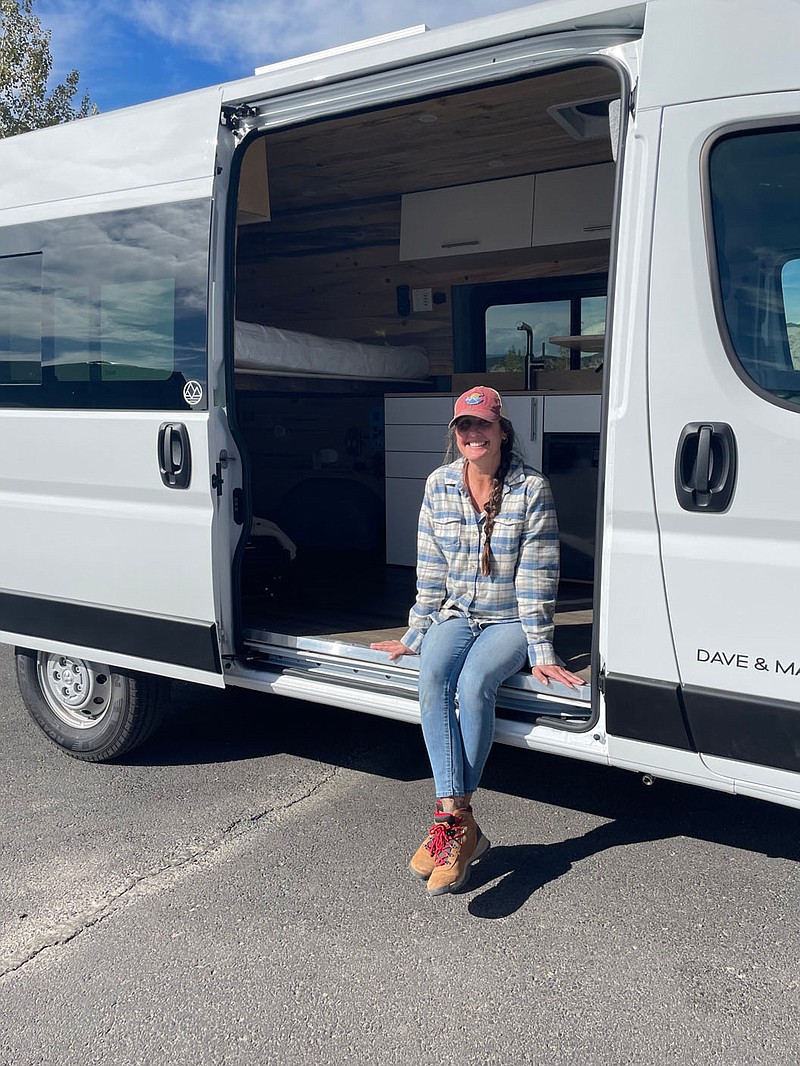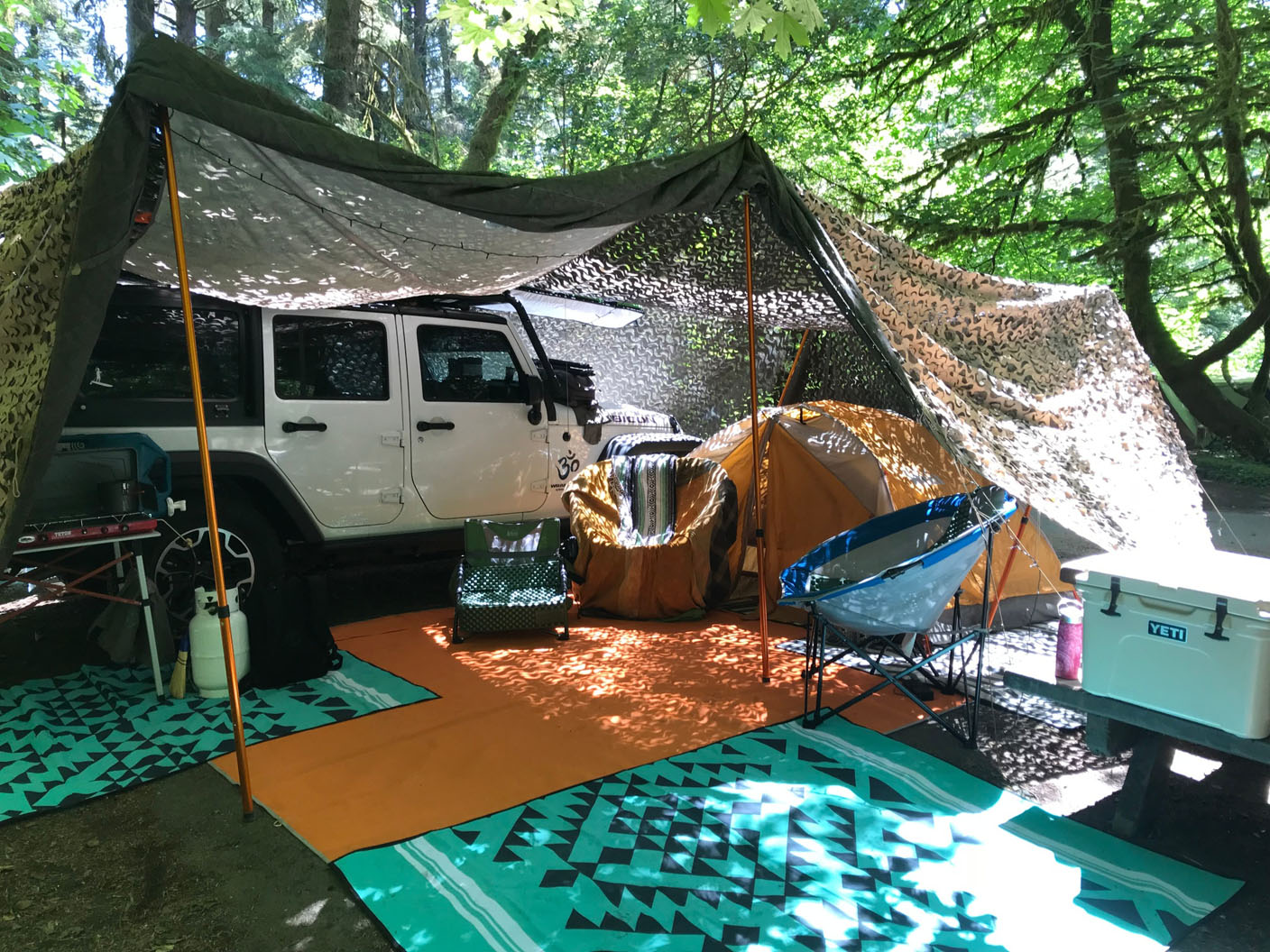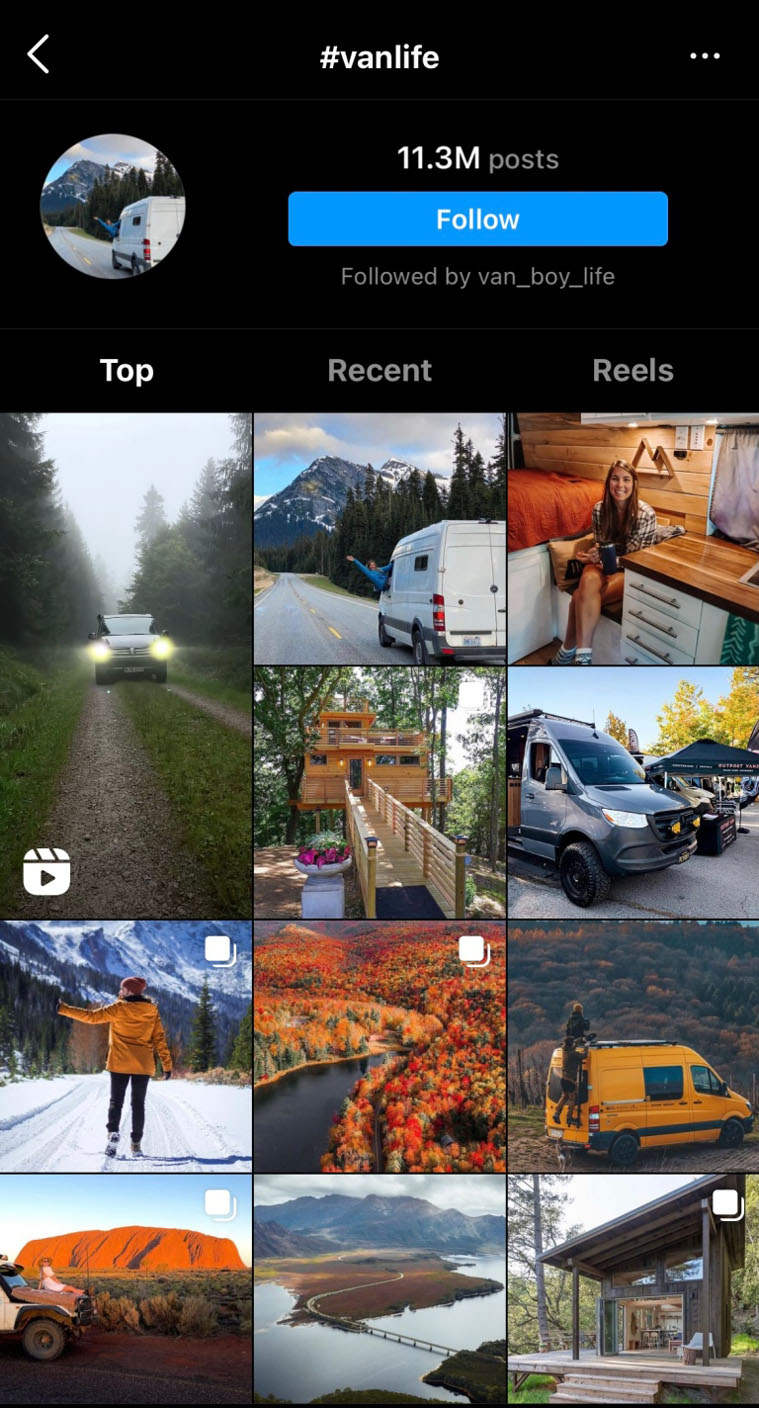The skin of her knuckles stretched tight over the steering wheel, mimicking the taut flow of traffic through Los Angeles. She was too afraid to turn on the radio with the knowledge that her first and only test drive of her temporary home had occurred just 24 hours ago.
The rattle of camping gear and supplies in the back of the van was the only background noise for an hour and a half as she meandered out of the city and into the Sierras of central California. Once she was sure the van wasn't going to topple over with the weight of a home on wheels curving through mountain roads, 42-year-old Jama Walter began to feel at home in her transient sanctuary.
She had borrowed her brother's Sprinter van for a week to take a road trip through the wilderness of California -- stopping first at June Lake for a hike through snow-capped mountain peaks and electric blue alpine lakes. After enjoying a cold beer at the brewery stationed near the lake, Walter embraced a new sense of freedom by jumping fearlessly into the water -- and toward the possibility of a new kind of life.
Walter is one of many people who has made the transition from living in a traditional home to a home on wheels since the start of the pandemic. The pandemic's restructuring of the corporate work week -- sending millions of Americans home from their cubicles or rendering them unemployed entirely -- heightened the appeal of remote work. This, combined with covid-19 travel restrictions, made van life an appealing, socially distanced alternative to working from a home office.
In 2019, the Census Bureau estimated the number of people living in unconventional housing units such as vans, recreational vehicles, or boats was around 140,000 -- an increase of more than 100,000 units from 2016. Though there is not yet data on housing units for the 2020 census year, van conversion companies have seen a boom in demand for their services since the pandemic began.
Walter says the van conversion company she used had a waitlist that lasted for months before she finally found out that her van was in production.
This spike in demand correlates with changing American attitudes regarding van life. A survey published by move.org examined how perceptions of van life have changed since covid-19's impact on socialization. According to the survey, 52% of hundreds of Americans surveyed last year were more likely to consider van life due to covid-19, with their primary motivations being to travel and be outside more.
"Basically, since I've retired, any time I go, I've been camping," Walter says. "First, out of my Prius in tents, and then out of my Subaru, in tents. And the whole year, when the pandemic hit, I was camping all year. But this last summer, I took my brother's van for a week and loved it."
Though the appeal of van life is alluring to people across the spectrum, the nomadic lifestyle has been glamorized via social media. Instagram boasts a whopping 11.3 million posts on the app under the hashtag "#vanlife," which has contributed to the lifestyle seeming unapproachable to anyone who does not fit into the social media influencer category.
Seth Biazo, a performing arts center manager living in Springdale, has been drawn to the freedom and boundlessness of van life for years, but says the recent romanticizing of the lifestyle due to popular social media posts by sponsored influencers has made it seem inaccessible.
"Before last year, I never really saw videos or posts about living in a van and traveling the way I do now," Biazo shares. "Every time I open TikTok, I see a new video about a different person 'following their dreams' and getting paid by all these brands to post content related to van life. It kind of just seems like it's a trend now -- funded by companies and hyped up online, rather than an actual thing anyone can do."
However, a new wave of van-lifers are proving that idea wrong. Rather than going rogue and leaving everything behind à la "Nomadland," the new generation of dedicated wanderers are finding ways to blend convention and new traditions to make the lifestyle work for them.
Walter picked up her new van, a 2021 Dodge Promaster, Oct. 11, but she made sure not to leave her existing life in the dust.
"I knew I needed to plant roots, so I chose to buy a condo before committing to something like a van," she reveals. "The first two or three years of retirement was really focused on my condo: I gutted it, changed it all around and made it a safe haven. And now, it's going to be a perfect home base."
Maintaining the balance between travel and having a home to return to when she's not hiking, camping, or exploring allows Walter to fulfill both her dreams of visiting as many national parks as possible in the next three years, as well as becoming a grandmother in the near future. But van life promises more than crossing items off a bucket list.
"I know that since my son has moved out, I've fallen into a pattern of just complacency and maybe being in the bar too much," Walter ventures. "This past year, I've really focused on changing my habits and following what I want to do. For a long time, I was scared. I stayed holed up for a few years right after I retired and did this remodel, but then I just really haven't left. For the last year, I've embraced doing more things like this, and it's brought so much more value to my life."
A common thread of people experiencing the same roadblocks exists in the form of online and in-person communities dedicated to breaking the barrier social media has constructed around van life and travel. Facebook groups such as Hike Your Own Hike, or HYOH, for short, are perfect examples of the network of people dedicated to getting like-minded individuals out of their comfort zone and into doing what they are passionate about.
HYOH's roster includes everyone from a van-lifer who left his business behind to hike the Pacific Trail, sold his house, and bought a van that he now parks in the mountains of Colorado, to an ex-schoolteacher who bought an RV and runs a travel blog to fund her excursions.
The organization is spearheaded by Alan Maschhoff, a soon-to-be nomad following in the bold footsteps of some of his club's members. Though he is dedicated to his organization and helping others feel accepted, the allure of living life on the road full-time has not been lost on him.
"Many people are logged into their 9-to-5 jobs because they've created a lifestyle that they think society would like to see you have, and that's not really true happiness," Maschhoff posits. "I don't think you're meant to sit there and go to an office every day and worry about deadlines all your life; I think we should live our life freely. And the more freedom you have from all those things, your life becomes much more fulfilling."
Maschhoff has lived a variation of van life before, making a living doing DoorDash deliveries to pay for gas and sleeping in his car to save money. As a self-proclaimed minimalist of 13 years, Maschhoff knows how to use what he has to make his dreams become reality.
Maschhoff and his wife are "going to basically just take the RV and the truck that we use to pull it and we're just going to travel around and make things work Dashing and selling stuff on our online store that we'll be starting soon and just kind of figure things out as they go," he says. "We don't want to work until retirement and then hopefully live long enough to do something -- we want to enjoy it now."
As the trend in traveling full or part time continues to grow, so do the number of new nomads who are finding a way to make seeing the world fit into their schedule.
"I think it takes a certain type of person, but I think because of social media you're getting a lot of people who are hating their jobs and hating their lives and so this is attractive to them because it's just something different," Maschhoff muses. "It's freeing, and once you take that step, it's hard not to love it."



